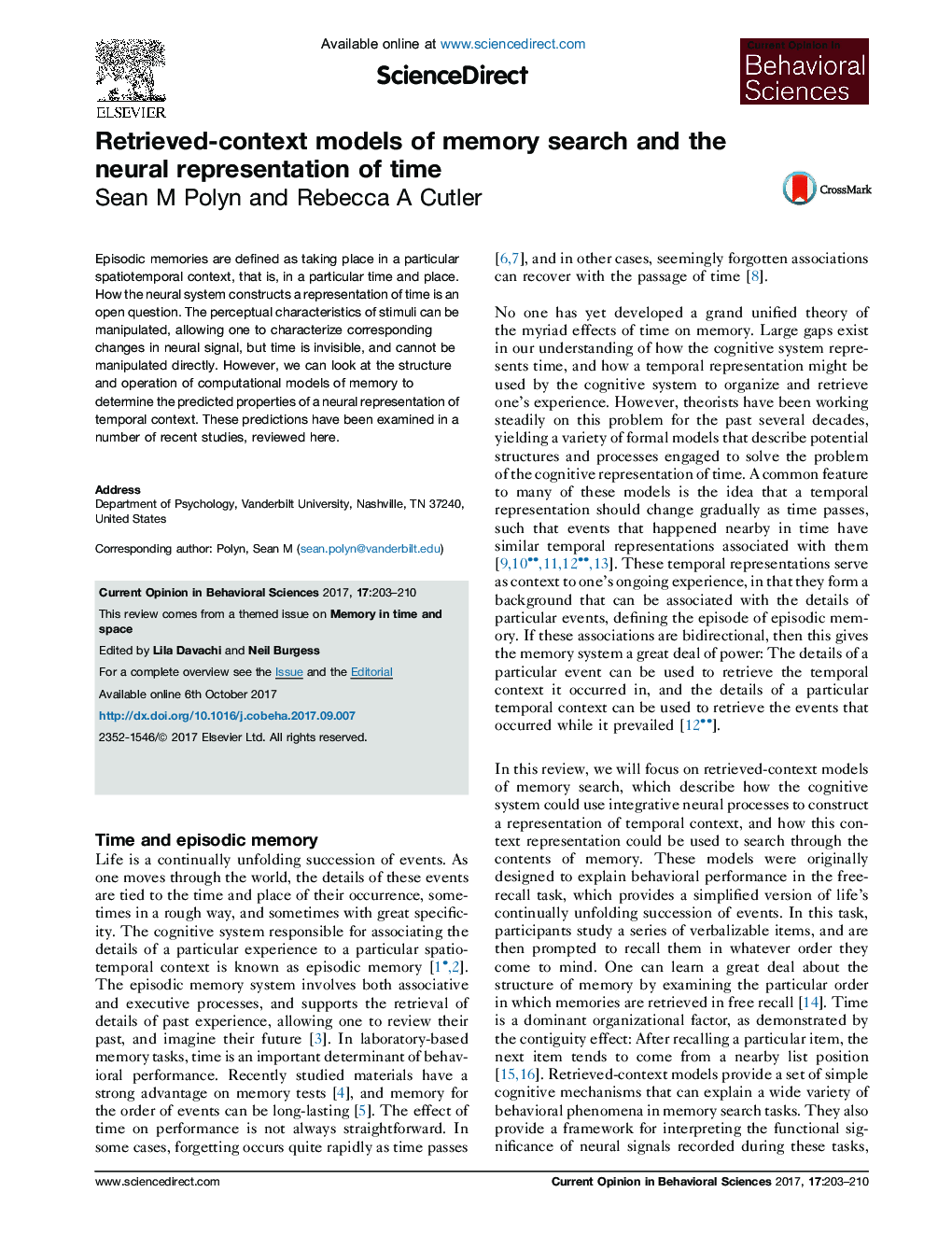| Article ID | Journal | Published Year | Pages | File Type |
|---|---|---|---|---|
| 5735784 | Current Opinion in Behavioral Sciences | 2017 | 8 Pages |
â¢Episodic memories are defined by their association to a specific temporal context.â¢Retrieved-context models use integration to create a temporal context representation.â¢These models explain the temporal organization of memories in free recall.â¢Neural effects may reflect the construction and utilization of a context representation.
Episodic memories are defined as taking place in a particular spatiotemporal context, that is, in a particular time and place. How the neural system constructs a representation of time is an open question. The perceptual characteristics of stimuli can be manipulated, allowing one to characterize corresponding changes in neural signal, but time is invisible, and cannot be manipulated directly. However, we can look at the structure and operation of computational models of memory to determine the predicted properties of a neural representation of temporal context. These predictions have been examined in a number of recent studies, reviewed here.
